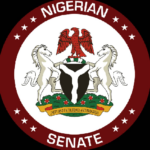The Debt Management Office has put the deficit financing of the revised N10.509trn 2020 budget proposal at N4.563trn.
The subsisting 2020 Appropriation Act, passed last December, had a total expenditure of N10.594trn and a deficit of N2.175trn.
- National Assembly committees begin consideration of revised 2020 budget
- Lawmakers divided over revised 2020 budget
However, in the revised budget proposal currently before the National Assembly, the deficit was increased by N2.736trn to N4.563trn.
DMO Director-General, Patience Oniha, disclosed this on Monday during a meeting of the Senate Committee on Local and Foreign Debt on the external borrowing in the revised 2020 budget.
She said in the revised budget, the deficit would be part-financed through domestic borrowing of N2.188trn and external borrowing of N1.984trn.
She said: “The proposed New Domestic Borrowing of N2,188.83trn will be raised from the domestic market through the issuance of Federal Government of Nigeria Bonds, FGN Savings Bonds, Sukuk, Nigerian Treasury Bills and possibly, a Green Bond.
“As of May 29 2020, a total of N1.319.99trn had been raised.
“There’s also an on-going Offer for Sukuk of N150bn.”
Stimulus package in place in case of recession
Meanwhile, the Minister of Finance, Budget and National Planning, Zainab Ahmed, in her presentation before the Senate Committee on Finance, allayed the fears of a drastic effects of a recession in the country.
“Very clearly, the Gross Domestic Product has been reduced because of the economic crisis that we found ourselves in, but Nigeria is not alone in this,” the minister said in her response to a question on the likelihood of a recession.
She said: “The global economy is predicted to be also slipping into recession.
“What we are hoping to do by our own collective efforts – the executive and the National Assembly – is that we minimize how far we go into recession.
“National Bureau of Statistics has made an assessment that we’ll go into recession to the level of 4%.
“So, some of the work that the executive is doing is preparing a stimulus package as a remedy, so that if it happens maybe we’re going into 0.5% or 1% not going much lower.
“That is our unfortunate reality and the reality of the global economy.”
The Federal Government, in the new budget proposal, had drastically slashed the earlier targeted revenues from all its revenue-generating agencies.
The N1.5trn earlier proposed for the Nigeria Customs Service was reduced to N950bn; N463bn earlier projected as stamp duty revenues for the Federal Inland Revenue Service now reduced to N200bn; N1.222trn earlier projected for NNPC’s federally funded projects now reduced to N484bn.
Chairman, Senate Committee on Finance, Solomon Adeola, said some of the new proposals in the revised budget might not be adopted as requested.
Stamp duty revenue projection reduced to N200bn
The FIRS said it has deployed technology to increase its tax base as well as improve the collection process.
FIRS Executive Chairman, Muhammad Nami, noted, however, that accessing and collecting tax depend largely on the performance of the economy of the country.
The revenue projection from stamp duty was reduced from N463bn to N200bn in the revised 2020 budget proposal.
Nami said: “The issue of stamp duty can therefore not be isolated because the initial projection was based on the fact that the economy was going to perform optimally to the extent that we’ll generate as much as N400bn from chargeable transactions.
“We still have issues with payment of stamp duty on contracts, particularly capital expenditure and services.
“If the tax payers’ capacity to spend has been adversely affected, it will surely affect our capacity to collect stamp duty from such transactions.
“We’re, however, very confident that, with the technology we’re deploying, we’re likely to do better than expected, bring more tax payers to tax net and the transactions that happen online that we were not able to tax before now.”

 Join Daily Trust WhatsApp Community For Quick Access To News and Happenings Around You.
Join Daily Trust WhatsApp Community For Quick Access To News and Happenings Around You.

